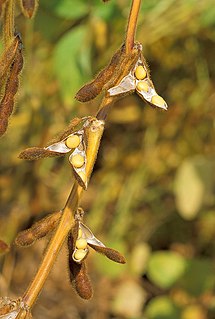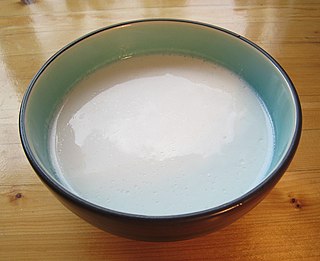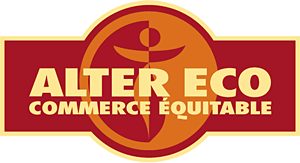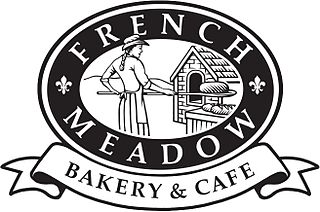| Private company | |
| Industry | Certified organic & non-GMO, identity preserved (IP) raw materials and food ingredients |
| Founded | 1991 |
| Founder | Peter Shortridge |
| Headquarters | Saint Paul, Minnesota |
Key people | Peter Shortridge, President Amy Nankivil, International Marketing Director Susan Ponsolle, Marketing Manager |
| Products | Oil seeds & grains Flours & meals Edible oils IP lecithins IP tocopherols |
| Website | Northland Organic Foods |
Northland Organic Foods Corporation (NOFC) was a global food and agricultural products company based in Saint Paul, Minnesota. Founded in 1991, Northland was in the organic foods industry, [1] specializing in the development, production, and international distribution of certified organic and conventional non-GMO specialty food and feed-use seeds, whole soybeans, corn, wheat and other cereal grains. Northland also produces and markets identity-preserved value-added ingredients such as soy meal, grits, flours, oils, lecithins and whole soybean powder under the IP Pure label. [2] [3]

Saint Paul is the capital and second-most populous city of the U.S. state of Minnesota. As of 2017, the city's estimated population was 309,180. Saint Paul is the county seat of Ramsey County, the smallest and most densely populated county in Minnesota. The city lies mostly on the east bank of the Mississippi River in the area surrounding its point of confluence with the Minnesota River, and adjoins Minneapolis, the state's largest city. Known as the "Twin Cities", the two form the core of Minneapolis–Saint Paul, the 16th-largest metropolitan area in the United States, with about 3.6 million residents.

Organic food is food produced by methods that comply with the standards of organic farming. Standards vary worldwide, but organic farming features practices that cycle resources, promote ecological balance, and conserve biodiversity. Organizations regulating organic products may restrict the use of certain pesticides and fertilizers in the farming methods used to produce such products. Organic foods typically are not processed using irradiation, industrial solvents, or synthetic food additives.

Organic certification is a certification process for producers of organic food and other organic agricultural products. In general, any business directly involved in food production can be certified, including seed suppliers, farmers, food processors, retailers and restaurants. A lesser known counterpart is certification for organic textiles that includes certification of textile products made from organically grown fibres.
Contents
Northland Organic Foods is actively involved on a local, national and international level in community programs and ecological conferences whose goals are to promote organic and sustainable agriculture. [4] The company also sponsors a website called Seed to Plate, a non-profit informational online resource dedicated to providing a forum for the discussion of agricultural, environmental, and artistic issues with the goal toward solutions and action.

Organic farming is an alternative agricultural system which originated early in the 20th century in reaction to rapidly changing farming practices. Organic farming continues to be developed by various organic agriculture organizations today,it also defined as use of relies on fertilizers of organic origin such as compost manure, green manure, and bone meal and places emphasis on techniques such as crop rotation and companion planting. Biological pest control, mixed cropping and the fostering of insect predators are encouraged. In general, organic standards are designed to allow the use of naturally occurring substances while prohibiting or strictly limiting synthetic substances. For instance, naturally occurring pesticides such as pyrethrin and rotenone are permitted, while synthetic fertilizers and pesticides are generally prohibited. Synthetic substances that are allowed include, for example, copper sulfate, elemental sulfur and Ivermectin. Genetically modified organisms, nanomaterials, human sewage sludge, plant growth regulators, hormones, and antibiotic use in livestock husbandry are prohibited. Reasons for advocation of organic farming include advantages in sustainability, openness, self-sufficiency, autonomy/independence, health, food security, and food safety.

Sustainable agriculture is farming in sustainable ways based on an understanding of ecosystem services, the study of relationships between organisms and their environment. It is a long-term methodological structure that incorporates profit, environmental stewardship, fairness, health, business and familial aspects on a farm setting. It is defined by 3 integral aspects which are: economic profit, environmental stewardship and social responsibility. Sustainability focuses on the business process and practice of a farm in general, rather than a specific agricultural product. The integrated economic, environmental, and social principles are incorporated into a “triple bottom line” (TBL); when the general impacts of the farm are assessed. Unlike a traditional approach where the profit-margin is the single major factor; Agriculture sustainability is also involved with the social and environmental factors.
Northland Organic Foods is the sister company of Northland Seed & Grain Corporation, based in Saint Paul, Minnesota, a producer and global supplier of identity preserved, non-GMO seeds, raw materials and ingredients to the food manufacturing and feed industries. [5] Northland Seed & Grain’s seed breeding program is centered on the development of traditionally crossbred, organic and non-GMO specialty variety seeds and grains.
Identity preservation is the practice of tracking the details of agricultural shipments so that the specific characteristics of each shipment is known. Identity preserved (IP) is the designation given to such bulk commodities marketed in a manner that isolates and preserves the identity of a shipment, presumably because of unique characteristics that have value otherwise lost through commingling during normal storage, handling and shipping procedures. The concept of IP has been accorded greater importance with the introduction of genetically modified organisms into agriculture.

A genetically modified organism (GMO) is any organism whose genetic material has been altered using genetic engineering techniques. The exact definition of a genetically modified organism and what constitutes genetic engineering varies, with the most common being an organism altered in a way that "does not occur naturally by mating and/or natural recombination". A wide variety of organisms have been genetically modified (GM), from animals to plants and microorganisms. Genes have been transferred within the same species, across species and even across kingdoms. New genes can be introduced, or endogenous genes can be enhanced, altered or knocked out.
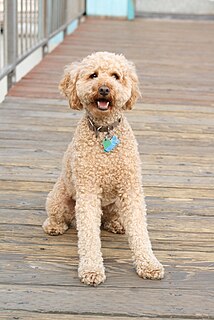
A crossbreed is an organism with purebred parents of two different breeds, varieties, or populations. Crossbreeding, sometimes called "designer crossbreeding", is the process of breeding such an organism, often with the intention to create offspring that share the traits of both parent lineages, or producing an organism with hybrid vigor. While crossbreeding is used to maintain health and viability of organisms, irresponsible crossbreeding can also produce organisms of inferior quality or dilute a purebred gene pool to the point of extinction of a given breed of organism.
